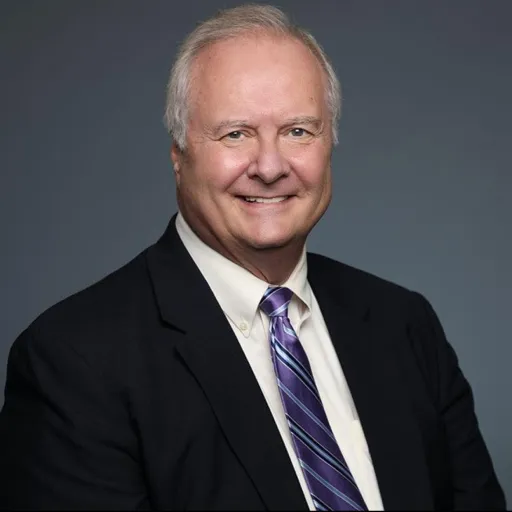
How Long Does It Take to Get Over a Breakup? Understanding the Timeline
Explore the factors that influence recovery time after a breakup and how therapy can help you heal.
The Average Timeline for Getting Over a Breakup
There’s no universal timeline for getting over a breakup, as it varies greatly from person to person. Some people might begin to feel better within a few months, while others might take years to fully recover. The timeline depends on factors such as the duration of the relationship, emotional intensity, and individual coping strategies.
Short-term relationships may lead to a quicker recovery compared to long-term, deeply emotional connections. Understanding that healing is a personal journey and that it’s normal for recovery to take time is crucial for managing expectations and emotions during this period.
Why Does It Take Time to Get Over a Breakup?
Recovering from a breakup involves more than just moving on from a person; it often means redefining your life and identity. Emotional attachment, shared experiences, and personal growth within the relationship all contribute to the healing process. It’s natural to feel a sense of loss and to go through a grieving process similar to any significant loss.
Emotional Stages of a Breakup: What to Expect Understanding the emotional
stages can help you navigate the healing process more effectively.
The Five Stages of Grief in a Breakup
Breakups often trigger a range of emotions that mirror the five stages of grief: denial, anger, bargaining, depression, and acceptance. Each stage represents a different aspect of the emotional healing process:
- Denial: This stage involves difficulty accepting the reality of the breakup. It’s common to feel numb or in disbelief.
- Anger: Anger towards the ex-partner, oneself, or the situation is a natural reaction. This stage can involve frustration and resentment.
- Bargaining: In this phase, individuals may attempt to negotiate or make deals to undo the breakup, often hoping for reconciliation.
- Depression: Feelings of sadness, hopelessness, and despair are prevalent during this stage. It’s important to seek support if these feelings become overwhelming.
- Acceptance: Eventually, individuals reach a point of acceptance where they come to terms with the breakup and start to focus on moving forward.
Factors That Influence Recovery Time After a Breakup Learn about the
different factors that affect how long it takes to heal after a breakup.
The Impact of Relationship Length and Emotional Attachment
The duration and depth of the relationship significantly impact the healing process. Longer relationships with strong emotional bonds typically take more time to get over. The more significant the relationship was, the deeper the emotional investment, and consequently, the longer the recovery may take.
Personal Coping Mechanisms and Support Systems
How quickly you recover also depends on your personal coping strategies and support system. Those who actively seek support from friends, family, or therapy often experience a more manageable recovery process. Engaging in self-care and maintaining a routine can also positively affect the timeline.
The Role of Therapy in Healing After a Breakup Find out how therapy can
support your emotional recovery and help you move forward.
How Therapy Supports Emotional Recovery
Therapy plays a crucial role in helping individuals navigate the aftermath of a breakup. Therapists offer a non-judgmental space to explore and express feelings. They can assist in identifying unhealthy thought patterns, provide coping strategies, and support personal growth.
Therapists use various approaches, such as cognitive-behavioral therapy (CBT) and mindfulness techniques, to help clients process their emotions and develop healthier coping mechanisms. Therapy can also aid in building self-esteem and resilience, which are essential for moving on and embracing new beginnings.
When to Seek Professional Help
If you find yourself struggling to move on, experiencing persistent sadness, or having difficulty functioning in daily life, seeking therapy might be beneficial. Professional help can provide guidance and support tailored to your specific needs, helping you navigate the complex emotions associated with a breakup.
Experienced Therapists Specializing in Breakup Recovery Our compassionate
team is here to support your journey toward emotional healing and personal growth.
Meet Some of Our Expert Therapists

Tom Malczyk
I provide a compassionate, warm, and easy going approach to therapy. My role is to help you define, navigate and overcome the obstacles holding you back from living your most authentic and meaningful life. It is an honor to walk beside each client on their journey of self-healing, restored balance and renewed connection.
View Tom's Profile
Elisa Frazier
I firmly believe that everyone has the potential to live a satisfying life, regardless of their past actions or current pain. My approach is to let the client set the pace and move towards their goals, while I support them every step of the way.
View Elisa's Profile
Don Price
I discovered my passion to make a difference in others' lives when I began my career in Behavioral Health over 20 years ago. I am privileged to meet people and together we find the solutions to whatever life problems come into our lives.
View Don's Profile
Elizabeth Turek
My therapeutic style is integrative and holistic, drawing from Client-Centered Therapy, Gestalt Therapy, Reality Therapy, and Regression Work. I incorporate mindfulness practices to help clients become more grounded in the present moment, and I emphasize self-awareness as a key to personal growth and emotional healing.
View Elizabeth's Profile
Cory Dolley
Hello. I know that when life is hurting you, kicking you when you are already down how easy it is to not want to get back up. I know how it is when you feel alone and scared and you just want to stay at home and not talk to anyone. There is help out there for you, just waiting for you to reach out. I am here to give you help, when you are ready to call.
View Cory's ProfileHow to Cope with a Breakup and Move On Explore practical tips for
overcoming a breakup and moving forward with your life.
Practical Tips for Moving On
Overcoming a breakup requires proactive efforts to rebuild your life. Here are some practical tips to aid in the recovery process:
- Engage in Self-Care: Prioritize activities that promote your well-being, such as exercise, hobbies, and relaxation techniques.
- Lean on Your Support System: Surround yourself with supportive friends and family who can offer encouragement and understanding.
- Set New Goals: Focus on personal goals and aspirations to create a sense of purpose and direction moving forward.
- Limit Contact with Your Ex: Minimizing contact with your ex-partner can help you focus on healing and reducing emotional distress.
- Seek Professional Help: Therapy can provide valuable support and guidance throughout the healing process, helping you navigate your emotions and develop coping strategies.
Remember, healing from a breakup is a personal journey, and it’s okay to take the time you need to recover. Be patient with yourself and seek support if necessary.
Insurance Coverage Made Simple
We accept most major insurance plans and offer low self-pay rates to ensure quality care is accessible to everyone. Your well-being is our priority, and we're here to help regardless of your financial situation.
FAQ: Common Questions About Getting Over a Breakup
How long does it take to get over a breakup?
What are the stages of getting over a breakup?
Can therapy help me get over a breakup?
What should I do if I can't get over a breakup?
Is it normal to feel angry after a breakup?
How can I speed up the healing process after a breakup?
Why do some breakups take longer to get over?
What if I feel better after a breakup?
Related Articles

I Miss My Ex: Understanding Your Emotions and Next Steps
Explore why you might miss your ex and what steps you can take to address these feelings. Learn how to cope and move forward effectively.

Emotionally Unavailable Men: Understanding and Coping
Is he emotionally distant? Learn to recognize signs of emotional unavailability in men, understand its causes, and explore healthy coping strategies.

Feel Guilty To Reach Out After a Breakup? You're Not Alone
Feeling guilty after a breakup is a common experience. Integrative Family Counseling offers support. Find a therapist in Dupage County, IL today.

Platonic Friendship: Navigating the Complexities of Non-Romantic Bonds
Platonic friendship is a valuable part of life. This article examines the complexities of these non-romantic bonds, offering insights into building and maintaining healthy platonic relationships.

